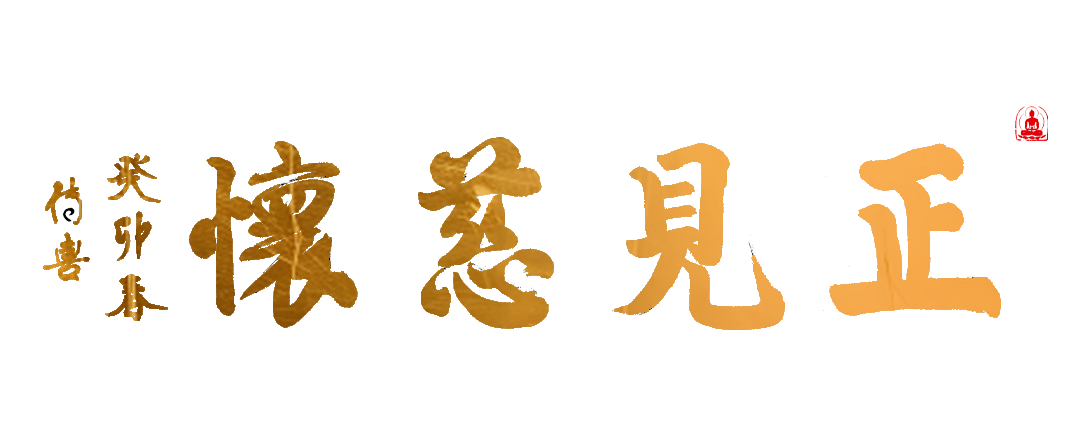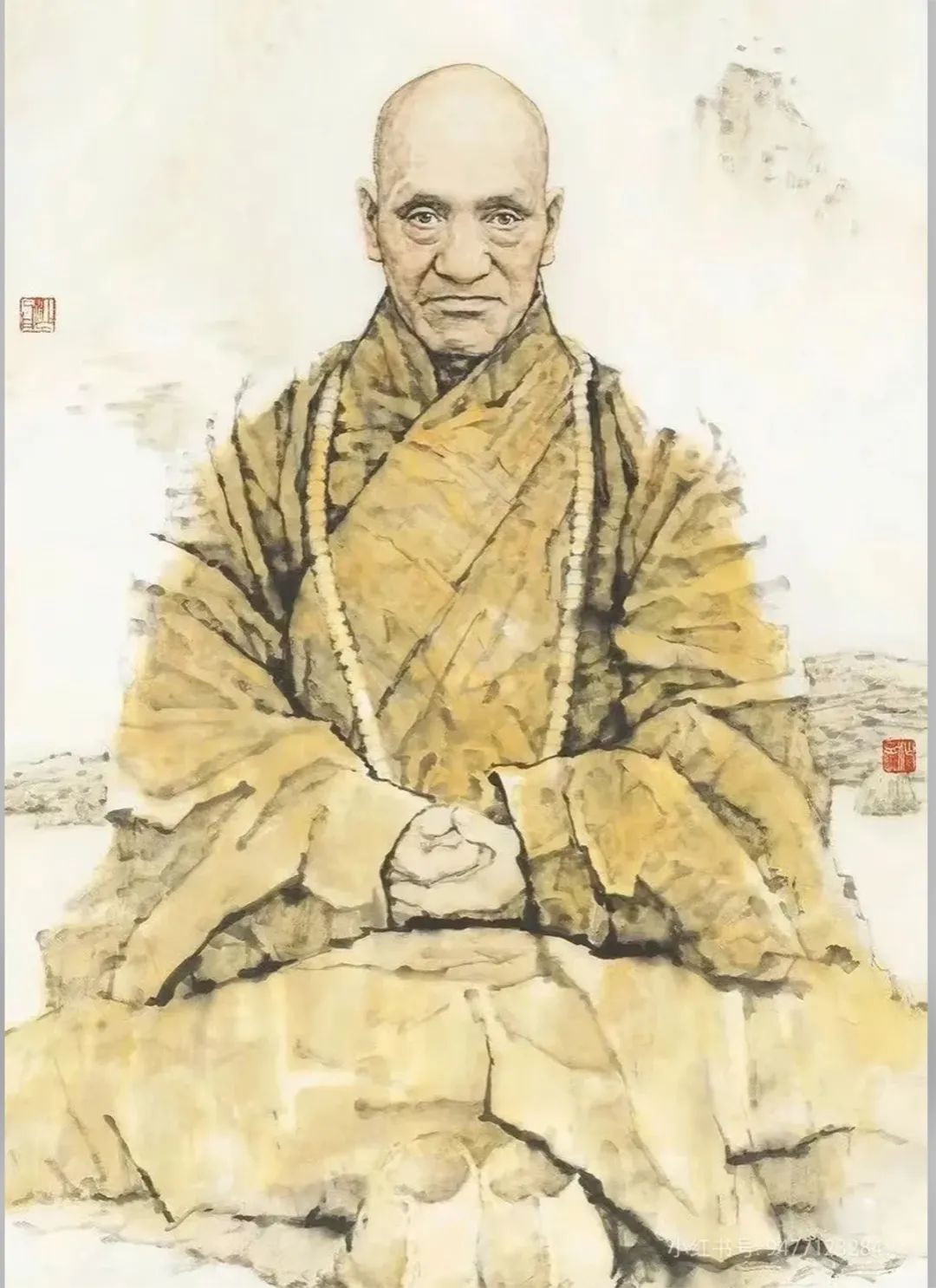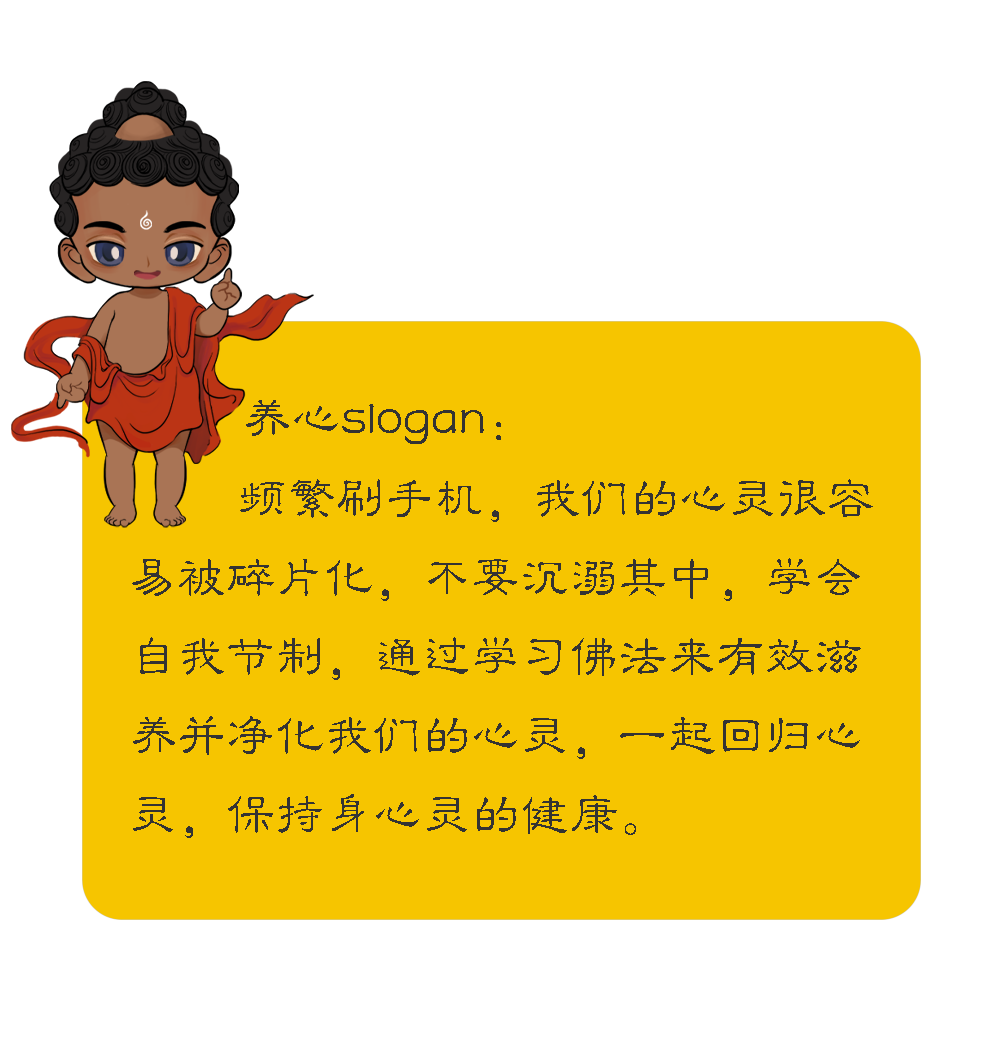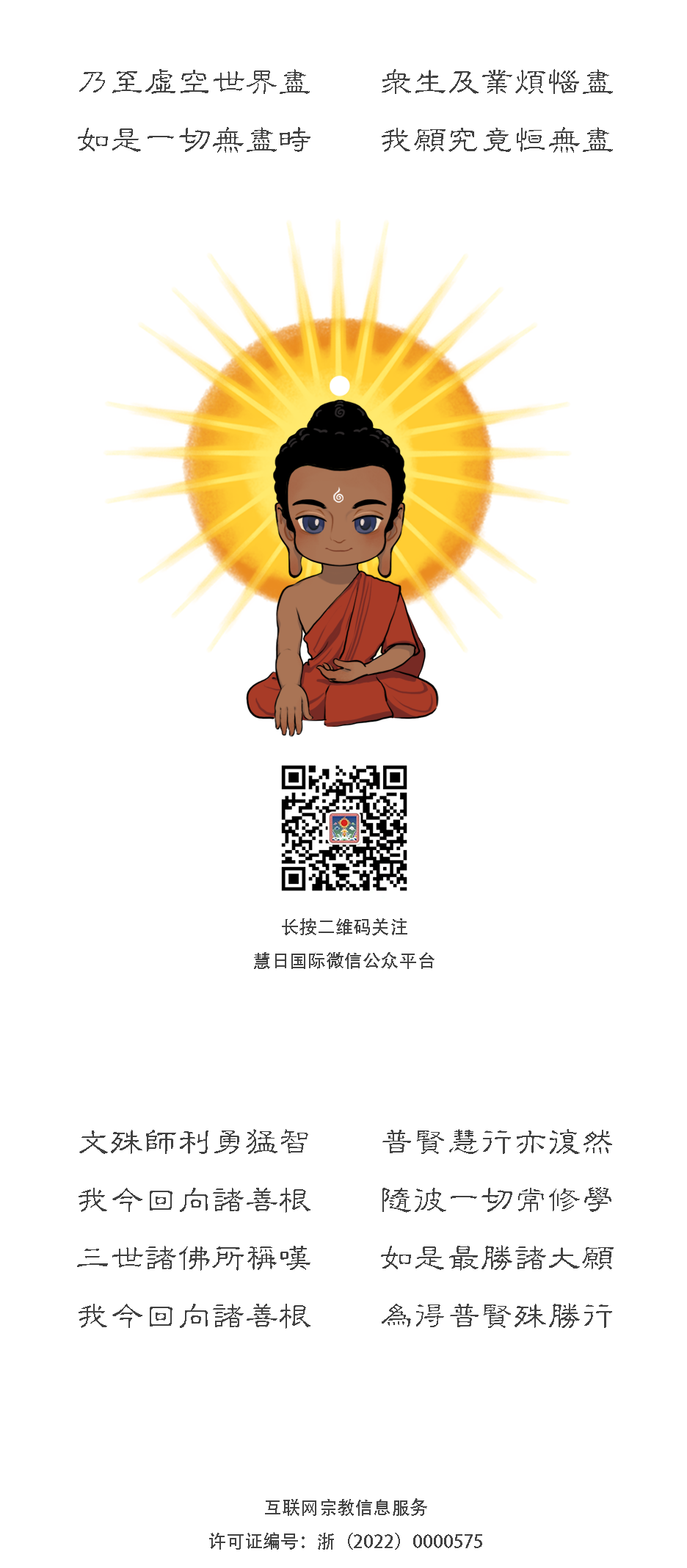让“常惭愧”擦亮心灵的镜子
2025.03.
Let “Constant Humility” Polish the Mirror of the Mind
Let “Constant Humility” Polish the Mirror of the Mind
Let “Constant Humility” Polish the Mirror of the Mind
让“常惭愧”擦亮心灵的镜子
命自我造,相由心生。
改变心就是改变相貌,改变心就是改变福报,改变心就是改变命运。

Let “Constant Humility”
Polish the Mirror of the Mind
佛教是智慧的、科学的。
掌握命运的规律,做命运的主人,
这就叫修行。
Our fate is of our own making; and our appearance arises from the mind. If you change your mind, you change your appearance; if you change your mind, you change your fortune; if you change your mind, you change your destiny. Buddhism is a tradition of teaching of wisdom and scientific insight. To understand the laws governing our destiny and thus become master of our fate — this is what we call spiritual cultivation.
迷者不信,糊涂、不知道佛法道理的人,他就不信;信者不迷,学佛的人,个个都能讲出很多学佛的道理。但可惜社会上很多人还不懂得这些道理,因为不懂,所以就说佛教是迷信。只要他说佛教是迷信,肯定就是不了解佛教。他既然不了解,我们也不跟他争,只能是他造口业犯错误,我们替他忏悔。
Those who are deluded do not believe. People who are confused or ignorant of the Buddhist principles and teachings naturally do not believe. Those who have faith are not deluded. Every student of Buddhism can explain many principles of the Dharma. Unfortunately, many in society are still unaware of these truths. Lacking understanding, they may label Buddhism as superstition. The moment someone says, “Buddhism is mere superstition,” it is certain that they do not understand what Buddhism truly is. Since they are unaware, we need not argue with them; they merely create negative karma through speech, and we repent on their behalf.
社会上诽谤佛教,不信佛教的人,我们要帮他忏悔。因为他就是过去不懂佛法时候的我们,我们也曾经是这样。
In society, when people slander Buddhism or refuse to believe, we should help them by repenting for them. After all, they represent our own past selves before we understood the Dharma. We, too, were once like that.
将心比心,学佛了,并不代表我们就多伟大了。只不过学佛了,我们知道了过去犯的很多错误:贡高我慢、邪知邪见;曾在无量劫来以至今生违背三宝、违背善知识、亲近恶友、造诸恶业。
Putting ourselves in their place, studying Buddhism does not make us somehow great. It only means that, through learning the Dharma, we have come to realise the many mistakes we made in the past: our arrogance and conceit, our distorted views. Throughout countless aeons, even in this very life, we have turned away from the Triple Gem, rejected benevolent teachers, mingled with unwholesome friends, and committed all manner of wrongs and negative karma.
我们今天学佛了,并不是说我们真的成圣贤了,不能因此傲慢了,觉得自己了不起了。就因为我们学佛了,才知道过去无明造作的恶业无量无边,才知道《地藏经》中地藏菩萨所描述的阎浮提众生刚强难化。
Now that we are learning Buddhism, it does not mean we have actually become saints or sages. We must guard against conceit and thinking too highly of ourselves. On the contrary, because we study Buddhism and have turned to the Dharma, we have come to realise how immeasurable and boundless our ignorance-driven misdeeds truly are, precisely as the Bodhisattva Kṣitigarbha describes in the Sūtra of Kṣitigarbha (the Earth Store Sūtra): that the sentient beings in Jambudvīpa are profoundly stubborn and difficult to transform.
我们自己想一想,是不是刚强难化?是不是起心动念无不是业,无不是罪?我们嘴里念着阿弥陀佛,但是真正的阿弥陀佛是无量光无量寿,祂是不分别。但是我们起心动念都是分别,都是违背阿弥陀佛无量光无量寿。
Let us reflect: do we not remain stubborn and difficult to transform? Do we not create negative karma in our every thought, in every stirring of our minds? Though we recite “Amitābha Buddha,” the true Amitābha is the Buddha of Infinite Light and Infinite Life, one who does not discriminate, whereas our minds continually give rise to judgement and discriminating notions, continually running counter to Amitābha’s boundlessness of light and life.
please click to play audio
2025.03
你为什么在生死苦海中轮回?
why do we remain in the bitter ocean of birth and death?
越学佛越开智慧,标准越高,
越知道我们自己有多差劲,学佛人就会很惭愧!
The more deeply we study the Buddha’s teachings, the more wisdom we gain, and the higher the standard we set for ourselves becomes. Accordingly, we see more clearly just how lacking we truly are. And so, those who follow the Dharma feel ever greater contrition and humility.
除了自己惭愧,还有如山的铁证:你为什么在生死苦海中轮回?你为什么生在人寿这么短的五浊恶世?是谁下请帖请你来的吗?是爸爸妈妈欠你的吗?都不是!是自己业力的召感,是自己无量劫修的因现在感得的果!
Besides our own sense of contrition, there is also ironclad evidence: why do we remain in the bitter ocean of birth and death? Why are we born into this world of five defilements, where human life is so brief and full of suffering? Who extended an invitation, compelling us to come here? Was it a debt our parents owed? Certainly not. It is but the summons of our own karma — causes sown throughout limitless eons, now maturing into present effects.
所以越学佛越惭愧。通过学佛,我们的心就变得柔软了,就不会再贡高我慢了,我们就谦虚了,就有了惭愧之心了,心一有惭愧,就有点圣贤的味道了。
Hence, the more we study Buddhism, the deeper our sense of contrition grows. As we learn the Dharma, our hearts soften, our arrogance and pride subside, we grow humble, and a sense of shame and remorse arises. Once the mind is touched by humility, we begin to embody something of the sage.
我们这个世界,一个人转凡成圣的第一步,就是有惭愧之心,这也是最底线。一个人惭愧之心都没有的话,不要说去不了极乐世界,就是天上也去不了。
In this world, the very first step in transforming an ordinary being into a saintly one is to foster a sense of shame—this is the baseline. Someone who lacks even the smallest feeling of remorse, could never hope to reach the Western Pure Land, nor even ascend to the heavens.
所以我们净土宗第十三代祖师印光大师称自己叫“常惭愧”。常惭愧就叫常念佛,常念佛就叫“常惭愧”。说明你有正知正见、正知正觉,说明你“明镜高悬”!
Therefore, the Thirteenth Patriarch of the Pure Land School, Great Master Yinguang, referred to himself as “Constantly Ashamed.” His state of constant shame is to be in constant mindfulness of the Buddha; likewise, to be in constant mindfulness of the Buddha is to remain “Constantly Ashamed.” This demonstrates correct knowledge and correct awareness. It shows that one’s “clear mirror is held high,” illuminating everything without distortion.

印光大师
我们的生命有很多的扭曲和丑陋啊,所以印光大师称自己“常惭愧”。他常惭愧的状态就是念佛的状态,说明他有正知正见,明镜高悬。心灵的镜子亮亮的,就是无量光无量寿!
Indeed, there is much distortion and ugliness in our existence. Hence, Great Master Yinguang called himself “Constantly Ashamed.” His abiding state of contrition was precisely the state of mindful recitation of the Buddha’s name; it indicates right understanding and perception. When the mirror of the mind gleams with clarity, it is none other than Infinite Light and Infinite Life!
——三参法师
Venerable Master San Can


皈依佛
皈依法
皈依僧

英文翻译:Iko&Matt
(澳大利亚)
英文朗诵:
Matt
(澳大利亚)

